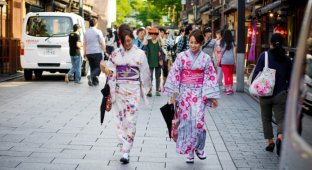Why do people in Japan stick needles into tofu once a year (6 photos)
No, not because it’s customary for them to torment and torture tofu there. But have you seen Japanese silk embroidery? And how beautiful are their embroidered belts? It is not difficult to guess that previously such work required titanic efforts from embroiderers and enormous skill. 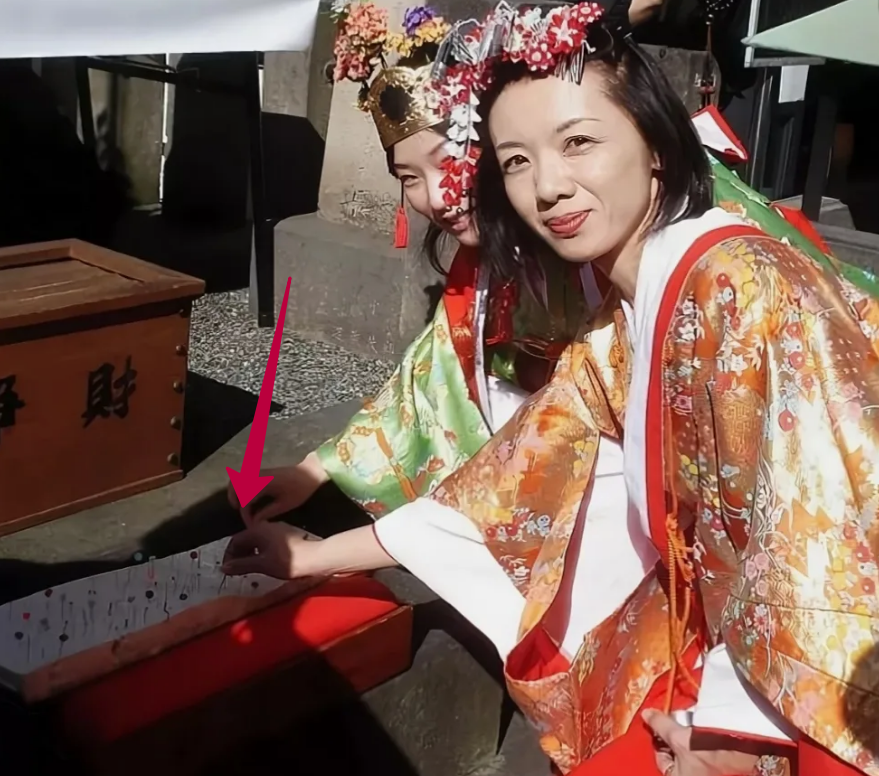
The girls dressed beautifully in bright kimonos, it’s a holiday!
And it is logical that a whole culture has formed around sewing and embroidery in Japan, which suddenly includes... funerals and commemorations of needles!
Why do we bury needles?
This funeral festival is over 400 years old. In February, women dress in colorful traditional kimonos and go to any Buddhist temple in Tokyo, where they can remember the needles that broke this year. 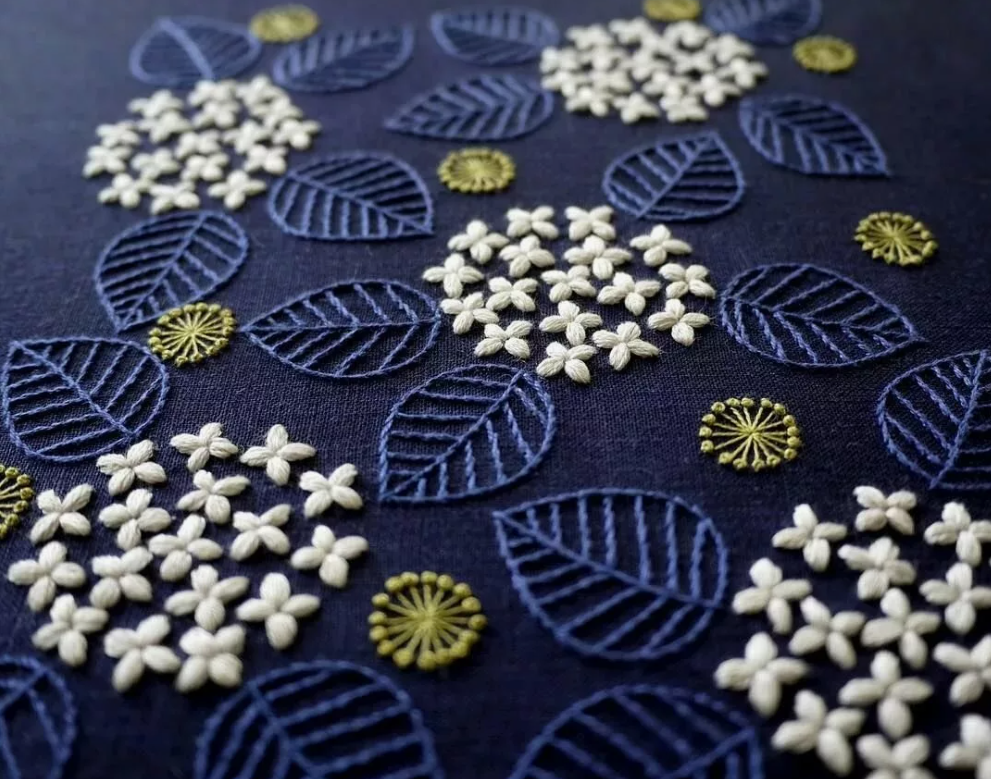
This is Japanese sashiko embroidery, have you ever seen one like this?
Because these needles served faithfully and worked as hard as their owners. Japanese women a hundred years ago were grateful for the help of needles, which gave them work and food.
The broken needle should be saved until February, and then at the Hari Kuyo festival, it should be stuck into special pieces of jelly or tofu. This soft bed is also a sign of gratitude for your work. 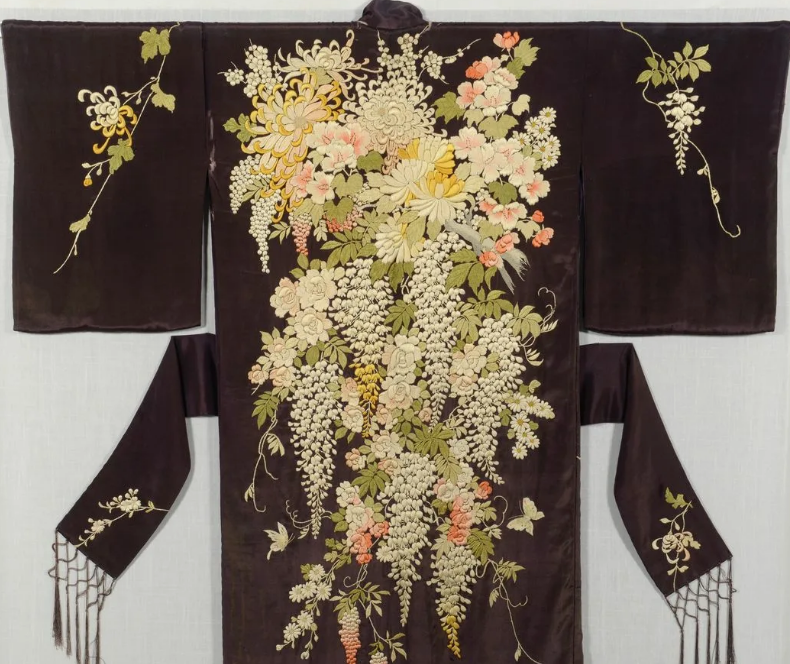
This kimono is embroidered by hand, can you imagine the titanic work?
In the Eastern tradition, in general, they quite often give thanks to things that help them earn a living. In our culture, we rather gave thanks to the horses and cows that helped cultivate the field. But in Asia they are more inclined to believe that not only animals, but also every object has its own soul, which means that a funeral can be held for it. 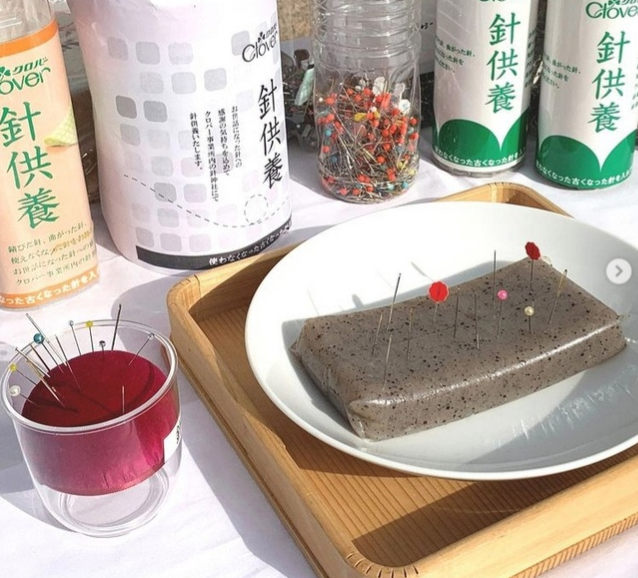
It looks like jellied meat with pepper!
Tofu is tenderness
Why in food, and even in tofu? Because it is incredibly soft and is found throughout Japan, that is, the ritual can be performed in any corner. Tofu is softness and tenderness, and after life the hostess wraps the needle in this tenderness.
In Japan there is still a belief that the pain and sorrows of seamstresses accumulate at the tip of a needle, which they cannot share with anyone. And in the end, they stick these sorrows into soft tofu, which will give them relief later. A very beautiful metaphor, and an understanding that not every misfortune can be shared. 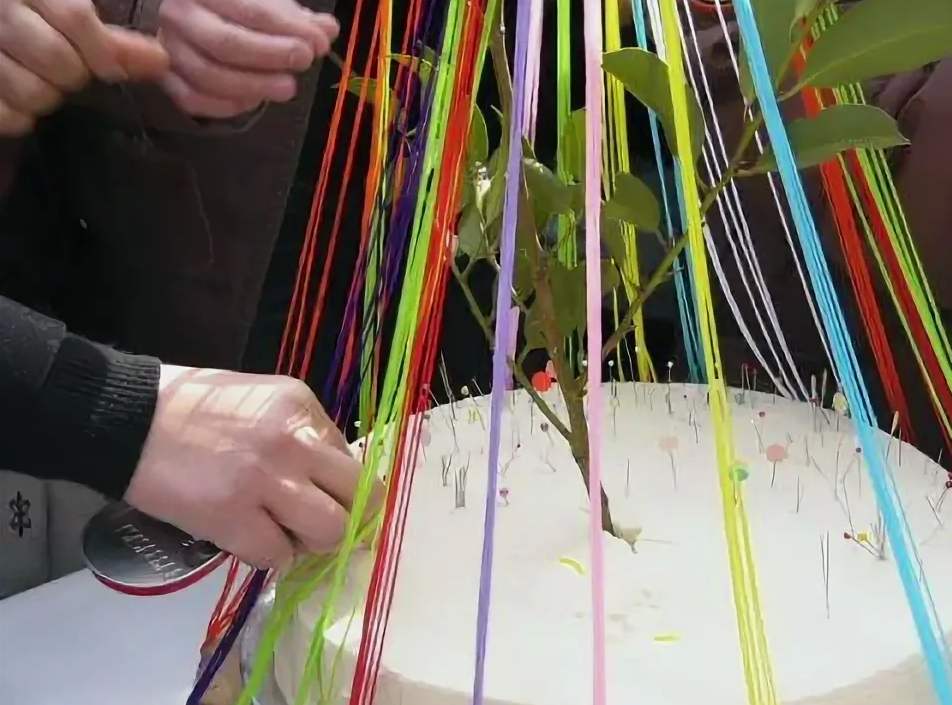
And here is a large one, decorated with ribbons and tofu needles
On the day of Hari Kuyo, it is forbidden to do any housework - let things rest.
God, make me straight-armed!
Nowadays Japanese women work in offices and are less and less interested in handicrafts; any clothes can be bought in a store. 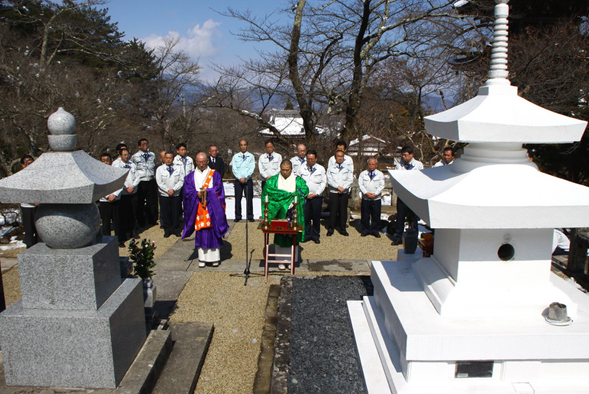
And this is the priest at the temple reading a prayer for the dead needles
That’s why young Japanese women often come to the ritual to pray to the needles and the deities to give them the gift of beautiful sewing. That is, they improve skills through prayer. Only girls who enjoy sewing as a hobby actually bring broken needles. Sometimes these are needles from sewing machines. Well, they also get soft tofu for their work!















